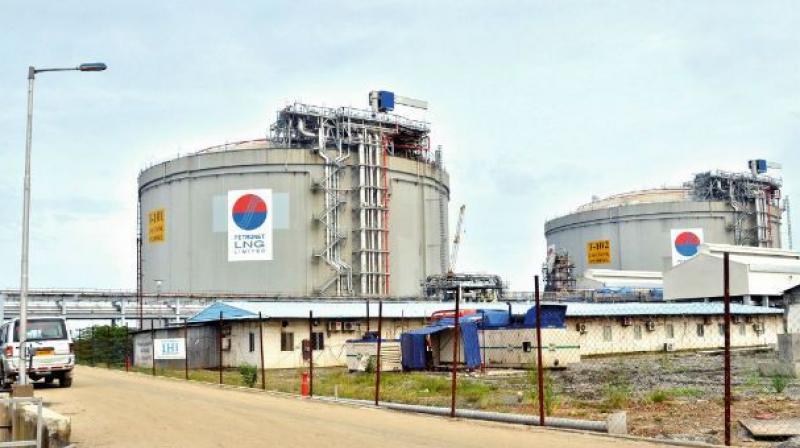Petronet bets on LNG-fuelled vehicles to drive up demand
India is increasing its capacity to import LNG to 50 million tonnes a year (mtpa) by 2022 from 21.3 mtpa now.

New Delhi: India's top gas importer Petronet LNG is betting on liquefied natural gas-powered ships and vehicles to drive up demand for the cleaner fuel, its managing director said, helping the world's third most polluting nation to improve air quality.
Prabhat Singh told reporters he expected a shift to LNG-driven vehicles to create "reasonable demand" for the fuel in a country where many industries are not yet linked to the pipe grid. India currently lags Asian rival China, where thousands of trucks and buses already run on LNG.
"This is a big item and big market," Singh said, adding many of the 200,000 trucks that on average join India's fleet a year could run on LNG.
New Delhi wants to raise the use of gas in its energy mix to 15 per cent in three to four years from 6.5 per cent now to curb emissions and cut its dependence on imported oil.
To meet that goal, it is expanding the gas distribution network in cities linked to the grid and plans to run inland barges and trains on LNG.
The government may issue an order in the coming week allowing the use of LNG as a transport fuel, Singh said, adding LNG stations were cheaper to build as the fuel is trucked in and so doesn't require pipelines.
LNG is also denser than diesel and compressed natural gas, meaning trucks and buses need smaller fuel tanks to go the same distance.
India is increasing its capacity to import LNG to 50 million tonnes a year (mtpa) by 2022 from 21.3 mtpa now.
Earlier this month, the country tested its first LNG-driven bus. Petronet is in talks with Tata Motors and Ashok Leyland to introduce LNG-fuelled trucks and buses, Singh said.
The company will unveil a detailed plan in January for selling LNG across the country for vehicles, ships and trains, he said, without elaborating.
It is also talking to fuel retailers - Indian Oil Corp, Bharat Petroleum Corp and Hindustan Petroleum Corp - to install LNG dispensers at their retail stations. It plans to build its own retail outlets too, Singh added.
The move will help Petronet to run its 5 mtpa LNG terminal in southern Indian at full capacity.
The plant is currently operating about 6-7 per cent capacity as pipelines linking major clients are bogged down in legal disputes relating to land.
In April-September, the first half of this fiscal year, India's local gas production declined 4.4 per cent, while imports rose 26.3 per cent.

